Community around Pomme de Terre Lake rallies against beef packers' plan to dump wastewater
Update: Missouri Prime Beef initially did not respond to requests for comment. The story has been updated to include an emailed response the company sent after publication.
For Goldie Potter, the Pomme de Terre Lake has been a constant throughout many stages of her life.
During her childhood, spent in the nearby town of Halfway, Potter and her family would travel to the lake for family outings. As a young adult, she spent time with friends on its shores every chance she got.
“My senior ring is at Cedar Crest Cove,” Potter said. “I can remember when I lost it. I know exactly where I was. You can’t find a ring in the lake.”
As she grew older, she and her sister brought their children to enjoy its natural wonders. She and her son would watch Fourth of July fireworks reflected over its waves.
Those are memories that she cherishes. Now she worries that if a permit is approved to dump treated wastewater in the nearby Pomme de Terre River, which flows into the lake, the beauty of Pomme de Terre Lake will exist only in memory.
“It will be devastating to Hermitage, to Hickory County and to Polk County because there's a lot of businesses in both of those counties that need the lake,” Potter said.

Permitting problems plague Missouri Prime Beef Packers
In Pleasant Hope, a beef packing company operates a plant that is in need of a new wastewater disposal permit. Missouri Prime Beef Packers, which was acquired by Texas-based STX Beef in May, processes roughly 750 cattle per day, 5 days a week. It retains its former business name, despite the acquisition.
When the facility first opened in early 2021, it obtained a permit to dispose of its wastewater through land application. The Missouri Fertilizer Board allowed facilities such as this to evenly spread the effluent on local farmland, within certain parameters and with permission from the property owners.
The wastewater must have some proven nutrient elements that the targeted soil was lacking in order to use this disposal method. But, as of July 1, Missouri Fertilizer Law changed, resulting in the revocation of land application permits for nutrient-rich waste from meat processing plants across the state.
“The Missouri Fertilizer Board changed their position, and they determined that wastewater and wastewater sludge no longer needed a license from them, not because they weren't still fertilizers, but because they weren't selling them commercially,” said Heather Peters, the water pollution control branch chief for the Missouri Department of Natural Resources.
Among those was Missouri Prime Beef Packers, which was granted a temporary extension by DNR to continue spreading effluent on land until either a satisfactory alternative was proposed and accepted, or January 1, 2024.
This prompted a new permit application for disposal of up to 350,000 gallons of wastewater daily through the DNR. Under the rules of the DNR, only 32 inches of wastewater can be applied per acre per year, meaning that the facility would need a minimum of 113 acres.
It had agreements with local landowners for 109 acres, leaving it short of the required land to process waste from 750 cattle a day. In all aspects other than available wastewater disposal sites, the facility has the capacity to process up to 850 cattle a day.
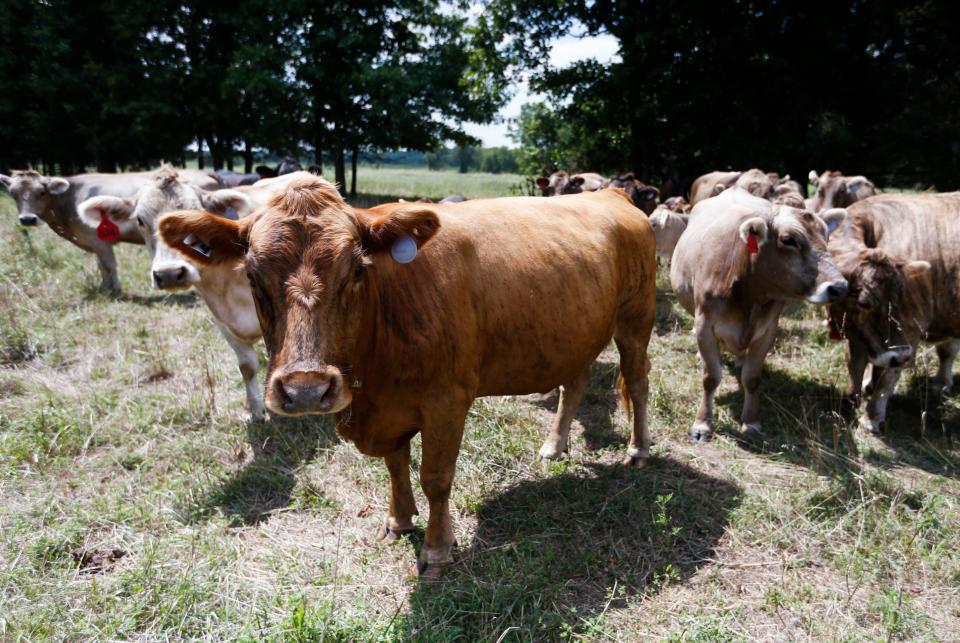
With the clock ticking toward the January deadline, Missouri Prime Beef Packers submitted a plan to use a new technology known as iLeaf to clean its wastewater. In theory, the technology says that it would release microbes to create enzymes capable of breaking down pollutants.
“It claims to basically be a one-size-fits-all cure to a very high pollutant-loaded waste stream,” said John Bledsoe, a native of Pleasant Hope who has a master’s degree from Missouri State University in natural applied science, with an emphasis in environmental chemistry.
Bledsoe has worked in tandem with the DNR to test certain points in the Pomme de Terre River, which has previously been included on the 303(d) federal impaired waters list. Just a few months ago, regulators recommended placing it back on the list for E. coli contamination.
Regulators considers iLeaf to be an innovative technology, meaning that it must meet more stringent standards to ensure it performs as promised. According to the DNR’s antidegradation report, it would have "an additional permit condition requiring the facility to submit a report after collecting a minimum year of additional data.”
Missouri Prime Beef Packers claimed that this technology had been used successfully in Arkansas, but both DNR and curious community members could find no record of this.
“In previous discussions, there was mention of sites in Arkansas using the iLeaf technology, as well as piloted or proposed use in other states. We were unable to verify that the Arkansas site was still using the technology,” John Hoke, director of the Water Protection Program wrote to Missouri Prime Beef on Sept. 22.
In fact, the only record of iLeaf found online through extensive research is a patent granted to Collin Tirman of Lonoke, Arkansas in 2018. Tirman is also listed as the party who submitted details about the technology in the DNR’s antidegradation report.
Tirman could not be reached for comment.
In response to community concerns, Missouri Prime Beef provided an emailed response.
“As the head of the Missouri Prime Beef Packers facility, we have heard and are taking concerns from the community very seriously," wrote Terry Maul, CEO of Missouri Prime Beef. "We are working closely with the Missouri Department of Natural Resources to meet their high safety standards."
Aside from its attractive pollution-busting promises, the cost of implementing iLeaf technology is about 36% of the next alternative, which has been proven to purify wastewater for disposal in waterways.
According to the antidegradation report, iLeaf would cost about $2.7 million including installation and one year’s operation and maintenance. Alternative technology includes a submerged attached growth reactor, with a price tag of about $7.5 million, and a Schreiber Continuously Sequencing Reactor, which costs about $8.7 million. Both of the latter figures also include installation and maintenance costs for one year.
However, the company indicated that the submerged attached growth reactor would cost as much as retrofitting the existing lagoons used to treat wastewater at the facilities. It argues in support of the iLeaf technology, saying it will improve water quality and aid any using the stream.
“The proper treatment and effluent limits met by discharging plants will aid in the environmental protection of the streams. That would aid nearby farmers utilizing the streams for irrigation of crops and watering of animals,” Missouri Prime Beef said in the antidegradation report.
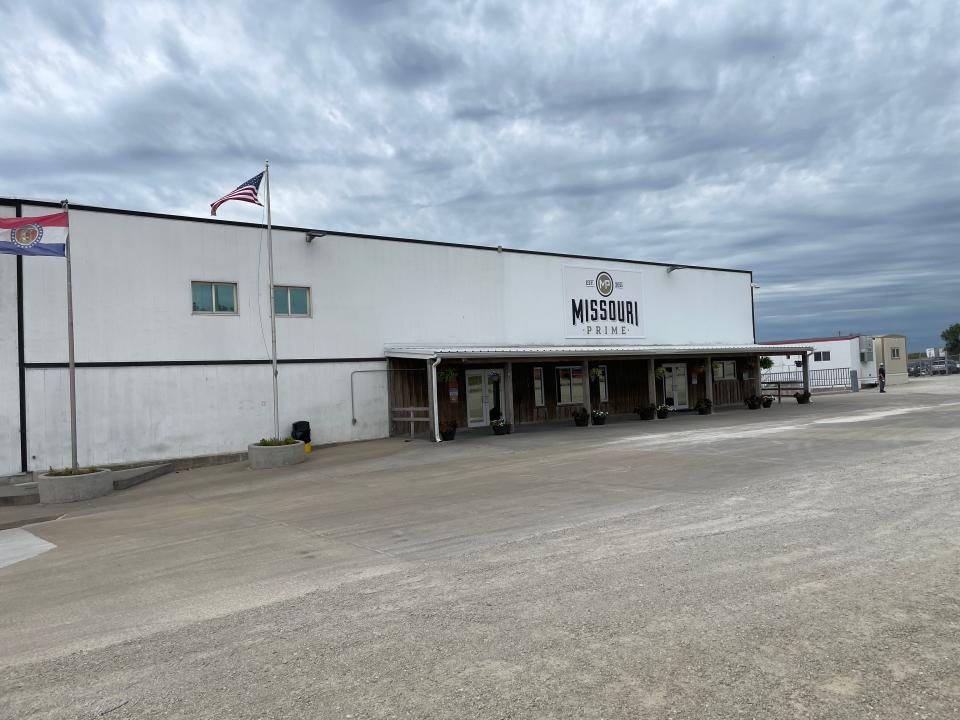
Given the innovative nature of the iLeaf technology, DNR requested additional information before it can grant a permit for Missouri Prime Beef to use iLeaf, in a letter dated on Sept. 22. The beef processor has until Oct. 23 to submit supporting documents or suggest a new wastewater disposal solution.
“Tentatively, they can provide traditional technology that is already established, that can meet the limits that we've come up with. The third option is that they could do land application and not discharge at all, and we put in there what we would need to do that as well,” Peters said.
More: Warsaw residents express concern about fate of Truman Lake Visitor Center
Local community members rally to defend water quality
While all proposed permits of this nature issued by DNR offer a period for public comment, most receive a handful of comments. This one, however, drew an unusually large amount of public interest.
“We received over 1,500 comments on the antidegradation review for Missouri Prime Beef,” Peters said.
After hearing that treated wastewater could possibly flow into the river, and by extension the Pomme de Terre Lake, members of the community made Facebook groups and a website dedicated to tracking the situation.
Others designed yard signs, banners and flyers to get the word out. A petition is being circulated to gather signatures in support of preserving water quality at the river and lake.
Many community members worry that discharging treated wastewater in the waterways will hurt tourism. In 2022, almost 261,000 people visited the Pomme de Terre State Park, bringing an infusion of revenue into the local community.
Monika Harper, who owns SUP Happy Paddle Boarding Adventures in Wheatland, said business appears to have suffered already as word of the wastewater permit request has spread.
“This isn't a big tourist area, so I don't get a whole lot of people, but it has really slowed down since all this waste stuff has come up,” Harper said. “People are already trying to say that they're not going to come back here next year because of all that waste being dumped.”
Others worry that it will negatively impact home sales and property values.
“I've already got real estate people telling me that people are backing out of looking at houses. I don't know if they backed out of contracts,” said Michael Nibert, a local resident who has been involved in efforts to preserve the lake’s water quality.
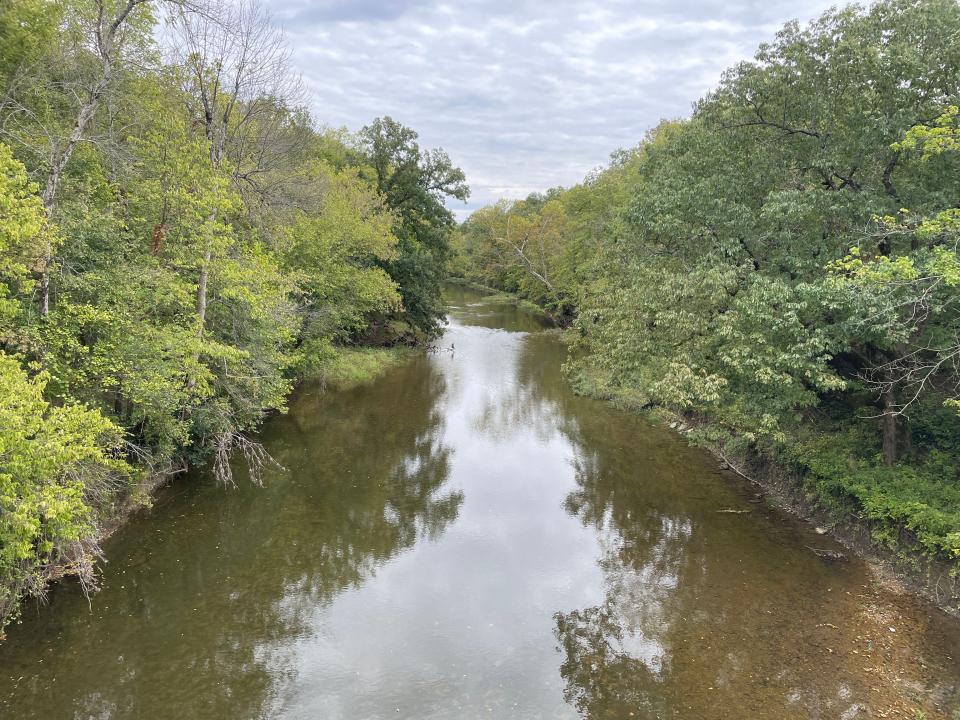
Additional concerns involve the impact the wastewater might have on the natural habitats of local aquatic life. The United States Fish and Wildlife Service designated the Pomme de Terre River as a critical habitat for an endangered species known as the Niangua Darter.
“There's over 20 different species of darters in the Ozarks, and they are highly sensitive to changes in waterfall, pollutants, and environmental factors,” said Bledsoe. “They need clean stream beds with flowing water and higher amounts of oxygen.”
It could pose a risk to other aquatic macroinvertebrates, such as the mayfly, the caddis fly, some fly larvae and riffle beetles. Fish may be impacted during their spring hatching season, as well as certain endangered species of bats that live in the area, like the Indiana bat, Northern long-eared bat and Gray Myotis bat.
However, Peters says that the DNR is always monitoring wastewater outputs to ensure that Missourians can continue to enjoy local water sources.
“We want to make sure that folks can go fishing there, that they can swim, that they can canoe, that they can float, that all of our aquatic life is protected both for short duration exposure and long term duration exposure, and that we can use that water for irrigation and for livestock watering,” Peters said.
Rep. Mike Stephens, who represents part of Polk and Hickory County in the state’s 128th district in the Missouri House of Representatives, said DNR carefully considers the health of the environment before issuing a permit.
“I think the thing that is probably forgotten or overlooked or kind of lost in the noise is that the DNR has a history of being extremely restrictive and strict about their regulations,” Stephens said.
However, if a company can satisfactorily check all the boxes required by law, a permit must be issued.
“We do have state and federal regulations that say when we have to issue a permit, and when we cannot issue a permit, and those are the regulations under which we must render our decision,” Peters said.
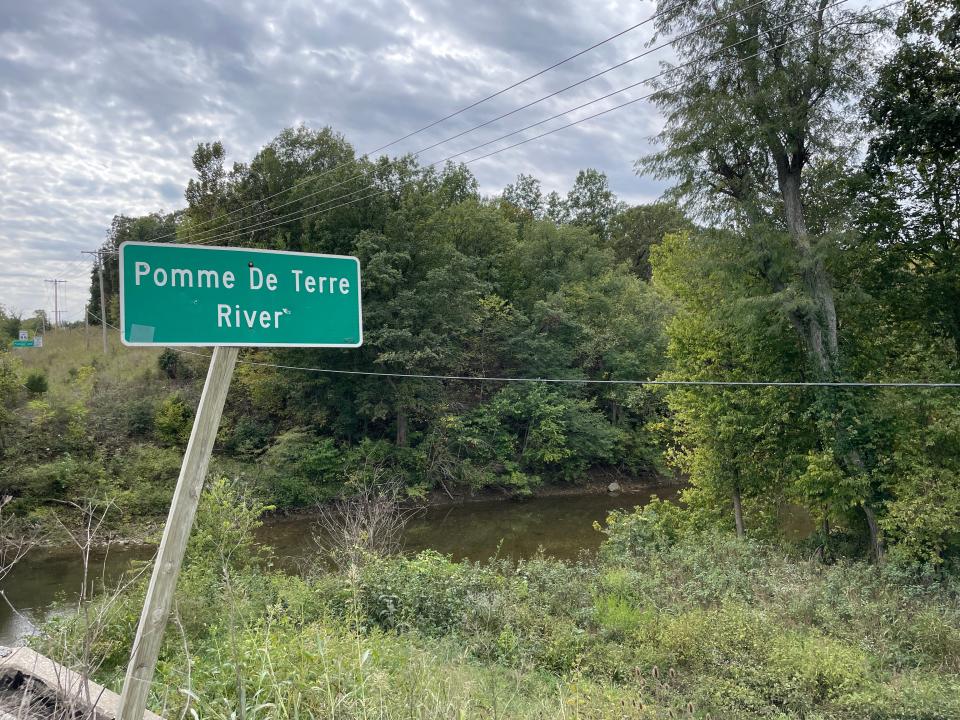
"There will be no cow heads floating down the river"
Although members of the community say that Missouri Prime Beef has not reached out to assuage their concerns, STX Beef CEO Terry Maul invited Missouri lawmakers and their field representatives to tour the processing plant.
Stephens said that he attended this tour, and was joined by Missouri Rep. Jim Kalberloh, who represents parts of Hickory, St. Clair, Benton and Cedar counties in the 126th district, as well as state Sen. Cindy Crawford and field representatives for Sen. Josh Hawley and Rep. Mark Alford, of Congressional District 4 where Pomme de Terre Lake is located.
Rep. Kalberloh did not respond to requests for comment.
“It is not proper, nor is it my purpose, to be the company spokesman, but to pass along what we have seen and heard and try to cut through some of the misunderstandings,” Stephens said as he began to recount the visit to the plant.
He explained that the facility uses or sells every part of the cow that is slaughtered and processed, leaving only trace amounts of manure, blood and potentially other small cattle bits in the wastewater.
“There will be no cow heads floating down the river,” Stephens said.
He explained that, while Missouri Prime Beef applied for a discharge of 350,000 gallons of wastewater per day, they would likely only do a fraction of that. However, the plant does plan to expand its operations, meaning that it could reach that level at some point in time.
Local residents are still skeptical of the beef processor, especially in light of its history of violations logged by the DNR. In July 2022, it was cited for polluting a tributary of the Pomme de Terre River through irrigation runoff from its property, as well as land-applying wastewater during rain events, which can also lead to run off.
Then in November 2022, it received a violation for conducting business without a Missouri State Operating Permit. It violated the Missouri Clean Water Law in March of this year by again causing pollution in a tributary of the Pomme de Terre River.
In May, it received another violation, this time for “placing water contaminants in a location where it is reasonably certain to cause pollution to waters of the state,” explained Peters in an email. She gave further details that reveal this pollution was caused by tanker trucks spreading and leaking on the roads.
Community members have witnessed this type of activity in ditches and fields near the processing plant. Photos and videos are often shared on the Facebook pages.
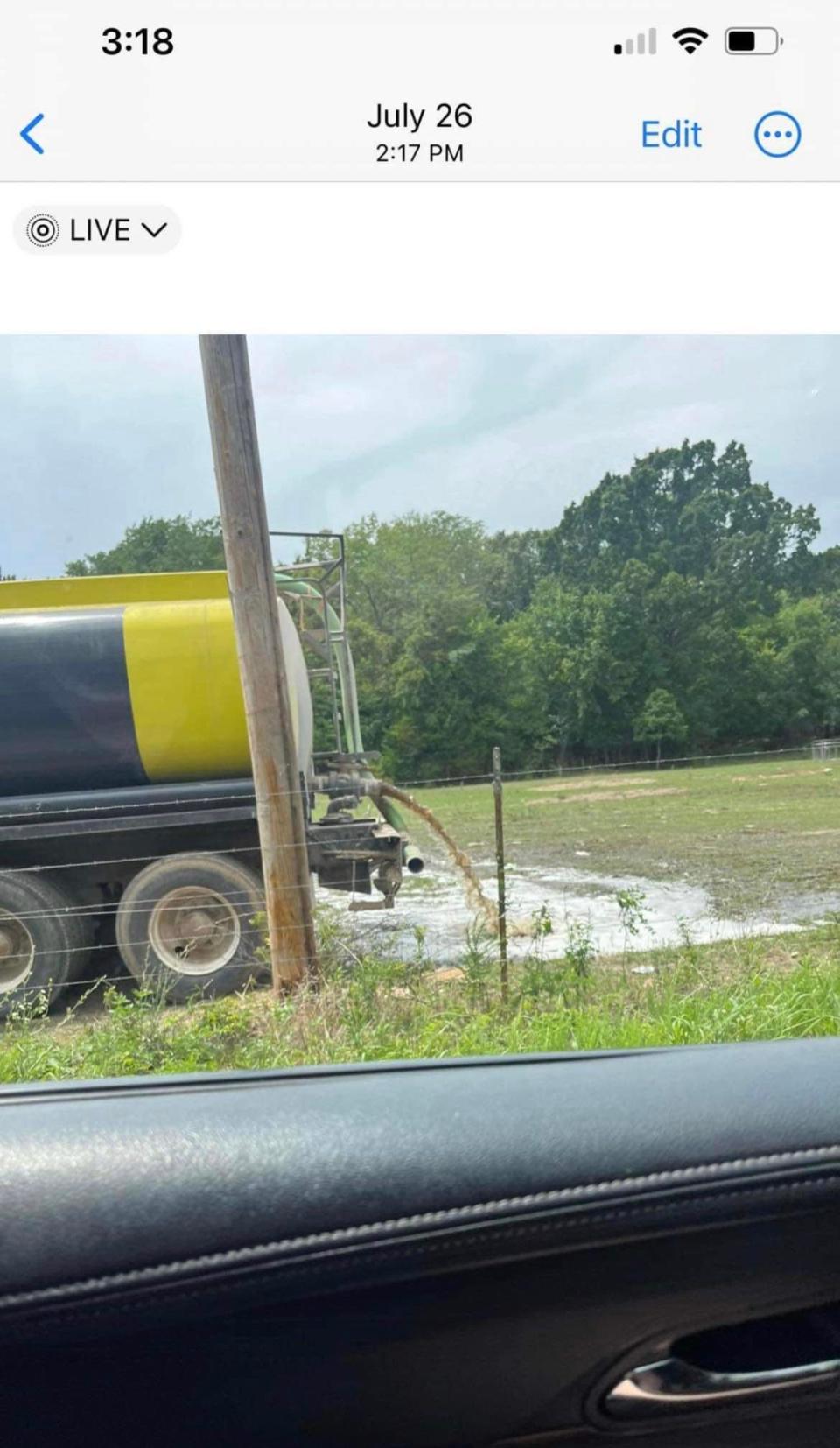
“The photo was taken from a public road, and the truck is just letting the waste dump out on the ground and there's a stream of waste just flowing right down the pasture where there's a creek adjacent to that that eventually flows right in the Pomme de Terre River,” Bledsoe said.
Community members reached out to Gov. Mike Parson’s office for assistance, and received a letter from its constituent services branch promising to look into reports of “odor and foaming as a result of land application practices.”
More: Politician or the people's lawyer? How the role of Missouri Attorney General has evolved
Community hopes for compromise in the path forward
No one in the community will argue with the fact that the Missouri Prime Beef plant brought new employment opportunities to the area. It’s antidegradation report said that the facility employs around 400 people.
“Nobody wants to fight the cattle farmers,” Harper said. “That just goes back to the misconception that we're trying to close the plant down.”
The meat packing facility recognizes the concerns of the community from which it draws its workforce.
"Pleasant Hope is our home," wrote Terry Maul, CEO of Missouri Prime Beef, in an emailed response. "We are proud of the 400 jobs we provide and the overall economic impact of our facility, and intend to do everything in our power to make our community a safe and thriving place for families to live and work."
Earlier yard signs made by the community had featured a cow crossed out in a large red circle with a line through it, but organizers removed that signage when they realized it could be misinterpreted.
Some new signs and banners, designed by local artists, feature a hand outstretched and reflected over the lake, while others simply depict a lakeside view.
Seeing the plant closed is not a goal of the grassroots community movement, who just want to see the water quality protected. Harper wants it to be a place for everyone to enjoy for years to come.
“I use the lake every day, whether it be for my dogs, or my paddleboarding rental business or just my own enjoyment,” Harper said. "I would like to have my grandkids enjoy this lake someday. This lake is our home."
She feels that there must be some middle ground to be found between the company’s desire to increase production and dispose of its wastewater, and the community’s need to protect the waterways.
“There's ways to do it, clean and safe, without putting all that into the river and the waterways,” Harper said. “There's gotta be a happy medium.”
This article originally appeared on Springfield News-Leader: Pleasant Hope meat packer's plan to dump wastewater faces opposition

